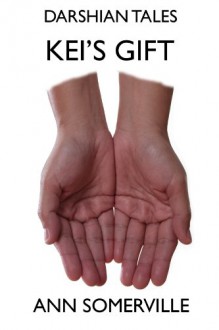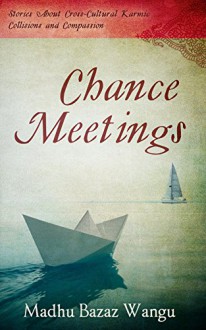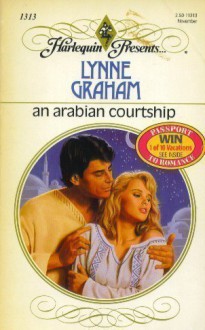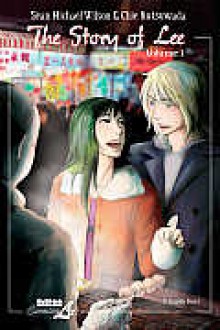
Just based on the number of times I've seen it recommended, I think this might be Somerville's best-loved book. I've owned it for a while and decided I was finally in the mood to read it.
When I start reading e-books, I usually dive right in without bothering to check their descriptions or genres. I thought at first that this was m/m fantasy romance. Sixty pages in, I decided I needed to reset my expectations, because Kei and Arman hadn't even met yet. Plus, the book's earliest (and, for the next several hundred pages, only) sex scenes involved Kei and Arman with other people. Now that I've read the whole thing, I think it might best be called fantasy (epic fantasy?) with strong m/m romantic aspects.
Arman is a general in the Prijian Empire, ordered to begin the invasion of northern Darshian – the Prij have already conquered southern Darshian. Kei is a healer in the small village of Ai-Albon, in northern Darshian. Both men view each others' peoples as savages. To Kei, the Prij are greedy, war-like, and stupidly superstitious. To Arman, the Darshianese are simple, weak, and inferior. With time, they might even be grateful to their Prijian invaders, once they learn how superior the Prijian Empire is.
When Kei is made one of the Darshianese hostages and assigned to be a slave in Arman's household, the two men gradually learn more about each other and even become friends. However, they're still on opposite sides of a war, and their friendship is a fragile and complicated thing. Kei's people have good cause to hate Arman's, and Arman's people have the power of life and death over the Darshianese hostages.
I am the kind of person who stresses out over the lives of characters I care about. This book stressed me out so much, and there were times when I had to take a break because I was afraid to see how things were going to turn out. For readers who are like me, here's a bit of reassurance: yes, the ending is a happy one.
Although I called this fantasy fiction, the fantasy aspects are very light. The Prijian Empire and Darshian both have what appears to be a fairly high percentage of infertile people, so both societies are very concerned with fertility and successful births. Among the Darshianese, some of these “infertiles” have gifts, like being able to move things with their minds or speak telepathically. The Prij view tales of Darshianese gifts as fantastic stories. At least in this book, no Prijian infertiles are gifted.
This is a very long, slow-paced book, and it takes a while for events to move forward. Sometimes I noticed the length and felt vaguely like certain parts of the story could have been condensed, and sometimes I sank into the story and barely noticed how long it was. I was a little impatient with how long it took for Arman and Kei to finally meet, but I appreciated their slow-building relationship. At the time Kei was forced to be a part of Arman's household, Arman was filled with grief and hatred. Their friendship and the eventual hints of attraction they felt for each other were complicated by their respective positions. It was wonderful, intense, emotional stuff. I'm a fan of slow-developing relationships and romance, and this book gave me that in spades.
There were times when the story went outside my comfort zone. For example, the relationship between Kei, Reji, and Arman bothered me for a while. When reading romance, I prefer it when the characters are emotionally and physically involved with one person. After Kei and Arman became a couple, I wasn't sure how things were going to go. Early on, some of Reji's comments made me think that he was perhaps more content to have a long-term relationship with Kei than Kei realized, and I dreaded the “break up” scene.
It went better than I expected, but it bothered me that Kei viewed Reji as the lover he no longer had sex with and Arman as the lover he did. I saw it as unfair to both Reji and Arman, although they mostly seemed fine with that setup. I wanted Reji to be able to move on, and I wanted Arman to know he had a lover who cared for him and would never leave him for someone else. After the years Arman spent married to Mayl, I felt he needed that. All of this was dealt with in a way that worked better for me by the end, but, like everything else, it took a while.
Lots of things went more smoothly than I would have expected. This is not exactly a complaint, but I did spend a good portion of the book expecting horrible things that never happened. I tensed up before Kei's “break up” with Reji, before the trial at Ai-Darbin, and all throughout the events at the end. I won't say that everything was resolved easily, but it did all go much more smoothly than I expected, which left me feeling kind of...disappointed? Which is weird, because it's not like I wanted the characters to suffer more.
Probably my biggest complaint about this book was how black-and-white some things were. The Prijian Empire was warlike, superstitious, and arrogant. I struggle to think of a single good to say about it. Kei, a hostage and slave, had no reason to like it, and even Arman didn't seem to like anything about his home country besides Loke, his friend and servant, and Karus, his teacher. Darshian, meanwhile, was positively presented. It wasn't 100% perfect, but it was definitely better than the Prijian Empire, to the point that several Prij wanted to move there by the end.
I had similar issues with the way Mayl was depicted. At first, I thought she might end up being a more nuanced character. I thought her and Arman's marriage had started off well and then soured, but later it was confirmed that Arman had dreaded his marriage to Mayl right from the start. There was never any attempt to present motivations for her behavior, beyond “she's a horrible person.” Considering the very balanced way in which Arman was characterized, this bugged me. I didn't necessarily need Mayl to be likable, I just wanted her not to be such a flat character.
All in all, I enjoyed this book and look forward to reading more of this series. I loved these characters and am a little sad that Book 2 jumps 16 years into the future, but I'm hoping that the focus on Karik will allow for a more balanced look at both Prijian and Darshianese societies.
Additional Comments:
This was not an error-free book. There were occasional typos and missing words. They came up often enough that I felt I should mention it, but not so often that they interfered with my enjoyment of the story.
(Original review, with read-alikes, posted on A Library Girl's Familiar Diversions.)


 Log in with Facebook
Log in with Facebook 








